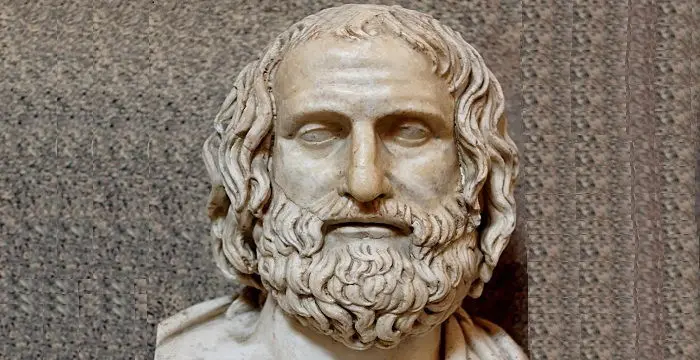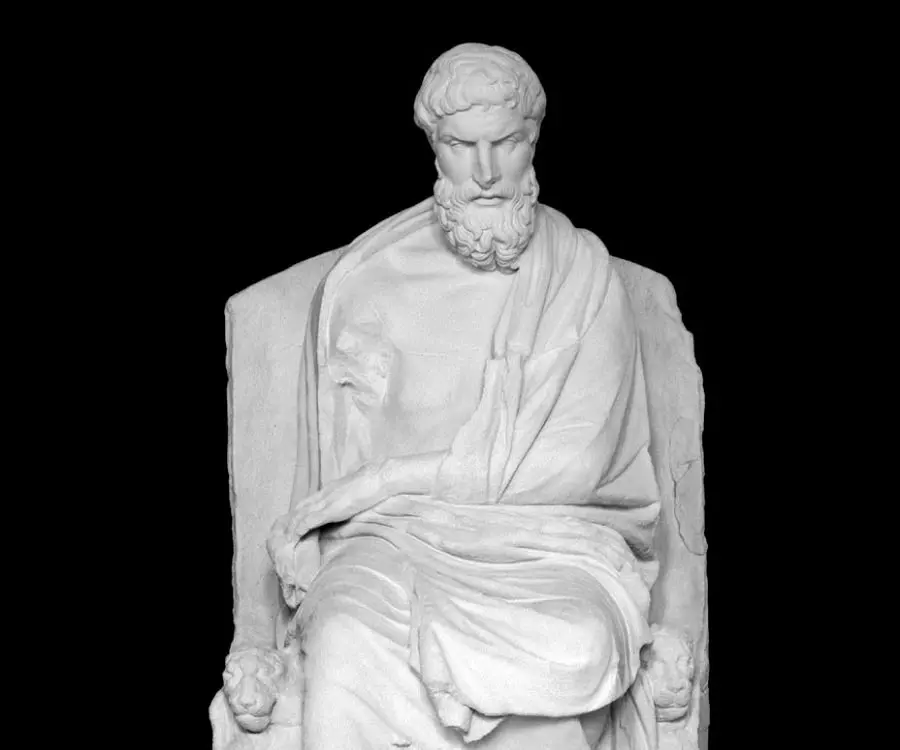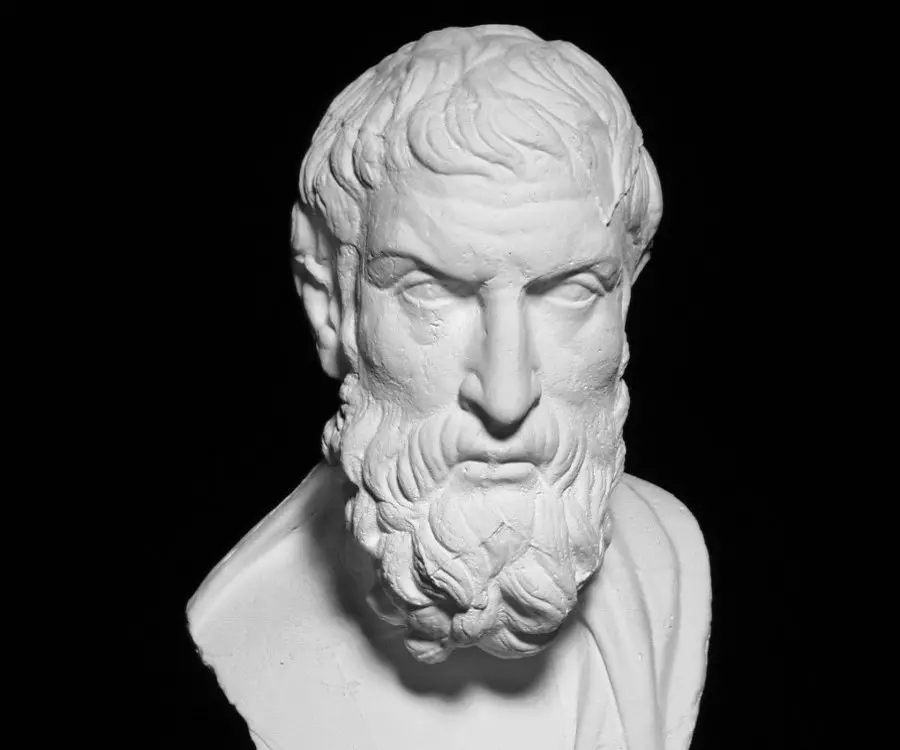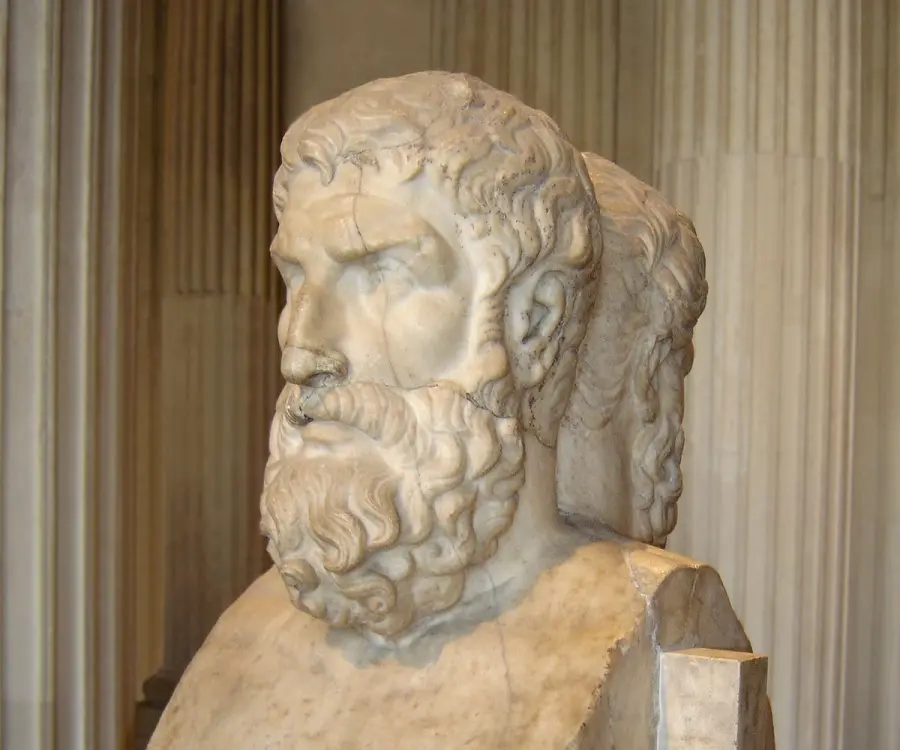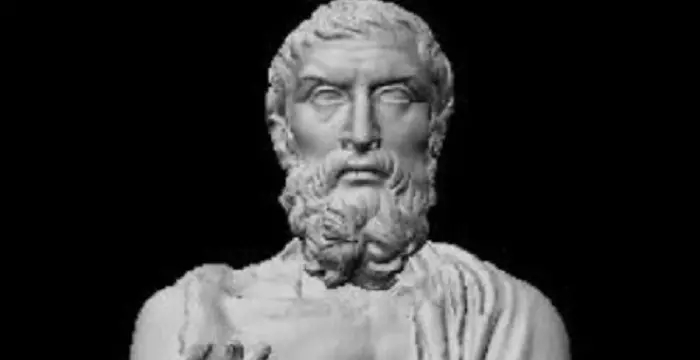
Epicurus - Greek Philosopher, Timeline and Childhood
Epicurus's Personal Details
Epicurus was a Greek Philosopher who led the foundation of Epicurean philosophy
| Information | Detail |
|---|---|
| Nationality | Greek |
| Famous | Intellectuals & Academics, Philosophers, ESTP, Greek Philosopher |
| Universities |
|
| Birth Place | Samos, Greece |
| Gender | Male |
| Father | Neocles |
| Mother | Chairestrate |
| Sun Sign | Aquarius |
| Born in | Samos, Greece |
| Famous as | Greek Philosopher |
| Died at Age | 71 |
// Famous Greek Philosopher
Protagoras
Protagoras was one of the most important Greek philosophers of ancient times. This biography provides detailed information on his childhood, life, philosophy, works, achievements & timeline.
Epicurus's photo
Who is Epicurus?
Epicurus was an ancient Greek philosopher and one of the prominent philosophers in the Hellenistic period. He was the founder of the school of philosophy called Epicureanism. World is still unknown to the majority of his work as there are only few fragments and letters left out of the 300 original works of Epicurus. The most of Epicurean philosophy was known to the world through his followers and commentators. The basic purpose of Epicurean philosophy was to acquire a happy and tranquil life, which was characterized by ataraxia which was complete freedom from worry and aponia, or absence of pain. One more feature required for the attainment of happy life was to live a self-sufficient life surrounded with friends. According to him, pleasure and pain are the measures of good and evil and death is the end of body and the soul, hence there is nothing to fear. He taught that the Gods couldn’t punish or reward humans and man should not worry about life. He further taught that universe is infinite and eternal and atoms are responsible for events that took place in the world.
// Famous Intellectuals & Academics
Bertil Gotthard Ohlin
Bertil Gotthard Ohlin was a famous Swedish economist. This biography profiles his childhood, family life & achievements.
Emily Greene Balch
Emily Greene Balch was an American economist, sociologist and pacifist who won the 1946 Nobel Peace Prize. This biography of Emily Greene Balch provides detailed information about her childhood, life, achievements, works & timeline.
Martin Buber
One of the greatest philosophers to have ever walked on earth, Martin Buber contributions to philosophy is a long-standing one. Explore all about his profile, childhood, life and timeline here.
Biography detail
Epicurus Childhood and Life
Epicurus was born in February 341 BCE to Neocles and Chaerestrate. His father had migrated to the Athenian settlement on the Aegean island of Samos few years ago before the birth of Epicurus. He was raised in Samos only. He studied philosophy under the Platonist teacher Pamphilus for four years. Thereafter, at the age of eighteen, he went to Athens for his two years military service. Following the death of Alexander the Great, Perdiccas expelled the Athenians from Samos to Colophon, which is a part of Turkey now. After finishing his military service, Epicurus joined his family in Colophon. He, then, studied under Nausiphanes, who taught him the teachings of Democritus. For the time period between 311 BCE to 310 BCE, he taught in Mytilene but after some discord he had to leave the city. He went to Lampsacus, where he founded a school. Epicurus returned to Athens in 306 BCE and stayed in the city till his death in 270 BCE. In Athens, he bought some land and founded a school named The Garden.
The school got its name as “The Garden” due to its basement in the garden of his house. The Primary members of this school included, Hermarchus, Idomeneus, Leonteus and his wife Themista, the satirist Colotes, Polyaenus of Lampsacus, and Metrodorus of Lampsacus. The Garden also held the unique distinction of being the first philosophical Greek school to admit women. Epicurus always emphasized on friendship as an important attribute for a happier life and the school encouraged the setting up of friend communities. Even though the teachings of Epicurus were influenced by earlier thinkers especially Democritus, he later denied the same. His only surviving complete works were three letters which can be found in book X of Diogenes Laertius's “Lives of Eminent Philosophers”. Book X of Diogenes also had two groups of quotes known as “the Principle Doctrines” written by Epicurus. Few fragments of his thirty-seven volume treatise “On Nature” was found in the fragments at the Villa of the Papyri at Herculaneum.
His Teachings
Epicurus had a significant role in development of science and the scientific method and emphasized on testing through direct observation and logical deduction. His ideas about nature and physics forecasted the important scientific concepts of our time. His ideas and egalitarian views made him an important figure of Axial Age, which existed in the period from 800 BCE to 200 BCE. He pioneered the concept of the “Ethic of Reciprocity” as the foundation of ethics in Ancient Greece. His teachings drifted from the other major Greek thinkers of his time, but had similarities with Democritus on many principles. He was an atomist like Democritus and believed that the world is made up of indivisible little bits of matter flying through space. According to him, everything occurring or happening in the world is due to colliding, rebounding and entangling of atoms which have no plan or purpose behind their actions. His view on atomism differed from the earlier views of Democritus on the point that atoms not always follow straight lines but often show erratic deflection from the normal course. This further confirmed his concept of free will. Epicurus was among the first Greeks to break the God fearing and God worship traditions prevalent at that time. Additionally, he also participated in various religious activities.
According to Epicurus, religious activities were important way to muse over God and set examples for a pleasant life. In his opinion, God does not punish the evil people and reward the good ones like the common people believe. Instead, He has no concern about human beings. His philosophy claims that all the good and bad that happen to people are based on pleasure and pain. Anything that gives pain is bad and anything that serves pleasure is good. According to Epicurus, in some cases, pain chosen over pleasure later leads to more pleasure. Perhaps, he was misunderstood as to encourage rampant pursuit of pleasure but what he actually wanted to say was in absence of pain, we achieve a state which is free from fear and retribution of Gods. He further said when we don’t feel any pain, we don’t need any pleasure and hence, acquire a state of perfect mental peace. Epicurus had warned against excess of things, as it generally leads to pain. The same law applies for everything including love. He encouraged friendships as the easy way of attaining happiness in life. He also said not to fear of death as, “Death is nothing to us”. Epicurus further added all the feeling, consciousness and sensation end with death and that there is no pain and pleasure for us to feel after that.
Death
Epicurus suffered from kidney stones and finally succumbed to it in 270 BCE. He was 72 years of age when died. He had no heirs or sons as he never married in his life.
His Legacy
Various thinkers and movements throughout the history of Western intellectuality showed and reflected the elements of Epicurean philosophy. The influence of Epicurean philosophy can be clearly evident from the atomic poems such as “All Things are Governed by Atoms” and natural philosophy of Margaret Cavendish. His concept of “Ethic of Reciprocity” which said of minimizing harm and maximizing happiness was later adapted by the democratic thinkers of French Revolution. The egalitarian views of Epicurean philosophy also influenced the American freedom movement and Declaration of Independence. Thomas Jefferson called himself an Epicurean and emphasized on “all men are created equal”. His influence on Western intellectual process can be clearly seen in the fact that Karl Marx had his doctorate for working on “The Difference between the Democritean and Epicurean Philosophy of Nature”. Epicurus was a source of inspiration for philosophers like Arthur Schopenhauer and Friedrich Nietzsche. Nietzsche liking towards Epicurean Philosophy can be found in Nietzsche’s works, The Gay Science, Beyond Good and Evil, and also in his private letters to Peter Gast.
// Famous Philosophers
Martin Buber
One of the greatest philosophers to have ever walked on earth, Martin Buber contributions to philosophy is a long-standing one. Explore all about his profile, childhood, life and timeline here.
Lao Tzu (Laozi)
Lao Tzu was a legendary Chinese philosopher who wrote the important “Daodejing”. This biography profiles his childhood, life, career, achievements and timeline.
Alan Watts
Alan Watts was a famous British philosopher known for his Zen teachings and interpretations of Eastern philosophy. Read more about this great philosopher in the following article.
// Famous ESTP
Megan Fox
Megan Fox is a popular American actress and model. This biography provides detailed information about her childhood, life, career, works, achievements, timeline, and trivia.
Marquis de Sade
Marquis de Sade was a French nobleman and an erotic novel writer. Check out this biography to know about his childhood, family life, achievements and fun facts about his life.
Meryl Streep
Meryl Streep is one of the most talented actors of the modern era. She has played the most real-life characters in the history of cinema. Check this biography to get details about her life, profile & timeline.
Jack Nicholson
John Joseph "Jack" Nicholson is an American actor and filmmaker. This biography profiles his childhood, life, film career, achievements and timeline.
Malcolm X
Malcolm X was a renowned African-American Sunni Muslim civil rights activist. This biography provides detailed information about his childhood, profile, career and timeline
Angelina Jolie
Angelina Jolie is one of the most celebrated film stars all around the world. Read this biography to learn more about her childhood, works, achievements, life and timeline.
Epicurus's FAQ
What is Epicurus birthday?
Epicurus was born at 2020-04-12
When was Epicurus died?
Epicurus was died at 2020-04-14
Where was Epicurus died?
Epicurus was died in Athens
Which age was Epicurus died?
Epicurus was died at age 71
Where is Epicurus's birth place?
Epicurus was born in Samos, Greece
What is Epicurus nationalities?
Epicurus's nationalities is Greek
What was Epicurus universities?
Epicurus studied at Epicureanism
Who is Epicurus's father?
Epicurus's father is Neocles
Who is Epicurus's mother?
Epicurus's mother is Chairestrate
What is Epicurus's sun sign?
Epicurus is Aquarius
How famous is Epicurus?
Epicurus is famouse as Greek Philosopher
